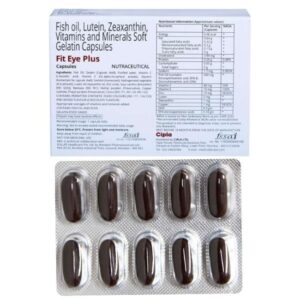ZINC + VITAMINS + MINARALS
Zinc: Zinc is an essential mineral used for various purposes in the body. It is found in many foods but is also available as a dietary supplement. It is commonly used to support the immune system, promote wound healing, and aid in proper growth and development.
The main mechanism of action of zinc is its involvement in numerous enzymatic reactions throughout the body. It plays a critical role in DNA synthesis, protein synthesis, and cell division, all of which are essential for proper growth and development. Zinc also has immune-modulating properties and can enhance the function of the immune system.
The recommended daily dose of zinc varies depending on age, sex, and specific health conditions. For adults, the recommended daily allowance is around 11 mg for males and 8 mg for females. However, higher doses may be required under certain circumstances, such as during pregnancy or while breastfeeding. It is always best to consult a healthcare professional for personalized dosage recommendations.
While zinc is generally safe when used in appropriate doses, excessive intake can lead to adverse effects. Common side effects include nausea, vomiting, diarrhea, and abdominal cramps. Long-term excessive zinc supplementation can interfere with the absorption of other essential minerals like copper and iron. Therefore, it is important to follow the recommended dosage guidelines to avoid toxicity and harmful interactions.
It is worth noting that zinc can interact with certain medications, so it is crucial to inform your healthcare provider about any medications you are currently taking before starting zinc supplementation. Additionally, individuals with certain medical conditions, such as Wilson’s disease or severe kidney disease, may need to avoid or use caution when taking zinc supplements.
In summary, zinc is a vital mineral that supports various functions in the body. When used appropriately, it can aid in immune system function, wound healing, and proper growth and development. However, it is important to follow recommended dosage guidelines and consult with a healthcare professional to ensure safe and effective use.
Vitamins: Vitamins are essential organic compounds that are required by the body in small amounts to maintain normal physiological functions. They are necessary for growth, development, metabolism, and overall health. While the term “vitamins” encompasses a wide range of compounds, here we will provide a general overview.
Use: Vitamins are primarily used to prevent or treat vitamin deficiencies. They can be used to supplement a regular diet when certain vitamins are lacking or when a person has a medical condition that leads to malabsorption or increased vitamin requirements.
Mechanism of Action: Each vitamin has a unique mechanism of action. Some vitamins act as coenzymes, which means they assist in enzyme-catalyzed reactions in the body. Others act as antioxidants, protecting cells from damage caused by harmful molecules known as free radicals. Additionally, vitamins play crucial roles in various physiological processes such as energy metabolism, immune function, and DNA synthesis.
Dose: The recommended daily intake of each vitamin varies depending on the specific vitamin, age, sex, and individual needs. Vitamins are available in different formulations such as tablets, capsules, liquids, or as components of multivitamin supplements. The dosage should be determined by healthcare professionals or according to the instructions on the product packaging.
Side Effects: Vitamins are generally safe when consumed in recommended doses, and the likelihood of experiencing significant side effects is low. However, in excessive amounts, some vitamins can cause adverse effects. For example, excessive intake of fat-soluble vitamins like vitamins A, D, E, and K can lead to toxicity symptoms such as nausea, vomiting, headaches, and even organ damage. Water-soluble vitamins like vitamin C and B vitamins are less likely to cause toxicity since excess amounts are usually excreted in urine.
It is important to note that while vitamins play a crucial role in overall health, they should not be seen as a substitute for a balanced diet. A healthy and varied diet is generally the best way to obtain the necessary vitamins and minerals. If you suspect a vitamin deficiency or are considering vitamin supplementation, it is advisable to consult a healthcare professional for guidance and appropriate recommendations.
Minarals: I apologize, but I couldn’t find any information on a drug called Minarals. It is possible that the drug name is misspelled or it may not be a widely recognized medication. If you have any additional information or if there is an alternative name for the drug, please provide it, and I’ll do my best to help you.

